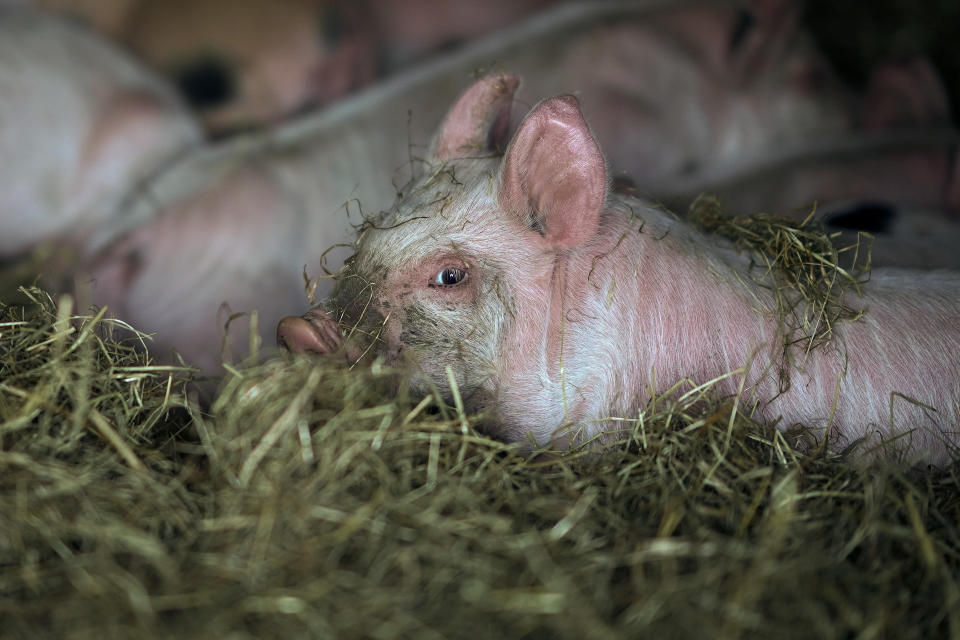Pork farmer: We're in a position we have 'never experienced' in our lifetime
While companies have scrambled to keep the U.S. supply chain running amid the novel coronavirus pandemic, the pressure is mounting for the pork industry.
Tyson Foods (TSN), the country’s largest meat producer, became the latest company to cause concern of a possible shortage after it announced it was suspending operations at its pork production plant in Waterloo, Iowa (though its CFO told Yahoo Finance this week that consumers shouldn’t panic about a potential meat shortage).
While plant closures are worrying consumers, they are also taking a major toll on the farming industry.
“We currently have about 20% plus, maybe 25% of the U.S. pork harvest capacity not functioning,” Trent Loos, a pork farmer and cattle rancher, told Yahoo Finance’s On the Move on Thursday. “Everybody is in a position like they've never experienced in their lifetime, where you've seen the pictures and the videos, and still today, dairymen are dumping milk. Pig producers are talking about euthanizing pigs. Cattle producers are, they have the ability to hold on a little longer, but there's some very scary dynamics.”

Plant suspensions are not the only headwind the industry is facing; government mandated closures of non-essential businesses are also having an unforeseen impact. “We had no idea that by eliminating food service, i.e. restaurants and in hospitals, in some cases, that we would cause such a disruption in the whole infrastructure of getting the food from the farm to the fork,” he said.
So why not sell directly to consumers? Loos said it was easier said than done. “So many people say, well, why don't you just take those 100,000 pigs and just take them to the people? Well, we have an infrastructure problem with small butcher shops that they are absolutely at capacity. They were at capacity before this happened.”
Will history repeat itself?
There is some optimism among pork farmers, according to Loos, who noted that the industry could “get back into the flow” if it can make it through the next 21 days. Of course, there’s still fear over where things might be headed, he added.
“We all think about the Great Depression images and the families that I talked to that were part of putting animals in mass graves,” he said. “It's not a place we want to be, because we still have a 7.5 billion people on the planet that want to be fed.”
Kenneth Underwood is a senior producer for Yahoo Finance. Follow him on Twitter@TheKennyU.
Read the latest financial and business news from Yahoo Finance
Follow Yahoo Finance on Twitter, Facebook,Instagram,Flipboard,SmartNews,LinkedIn, YouTube, and reddit.

 Yahoo Finance
Yahoo Finance 
